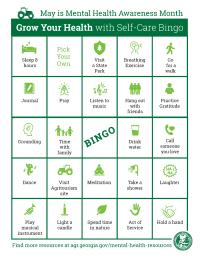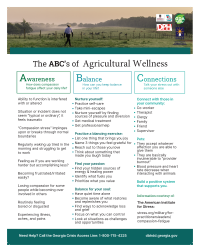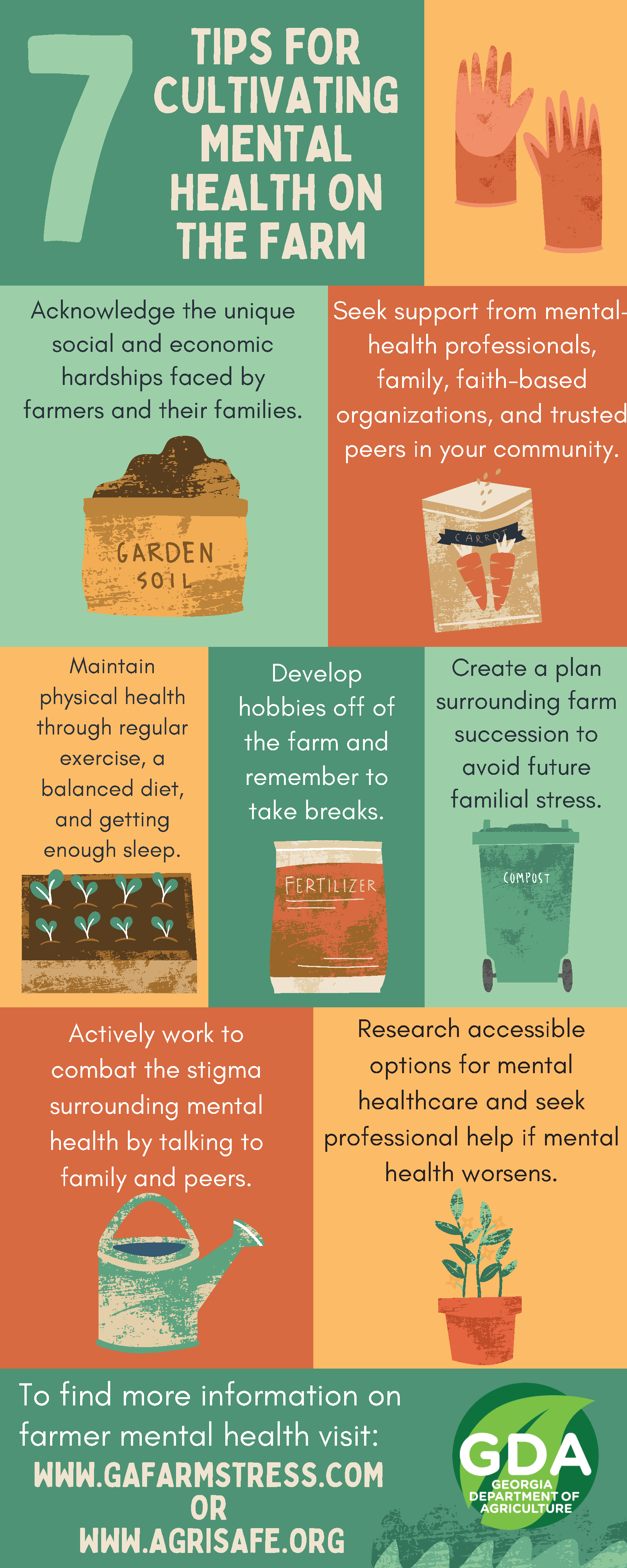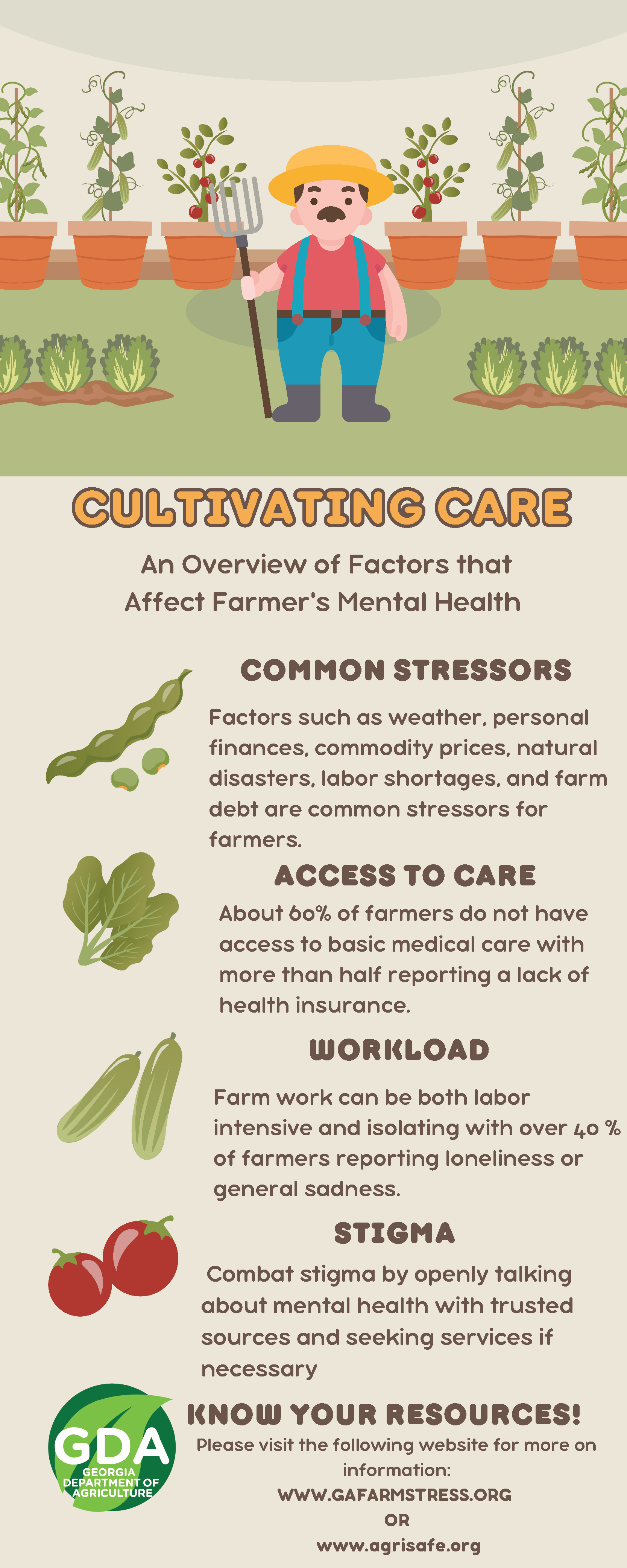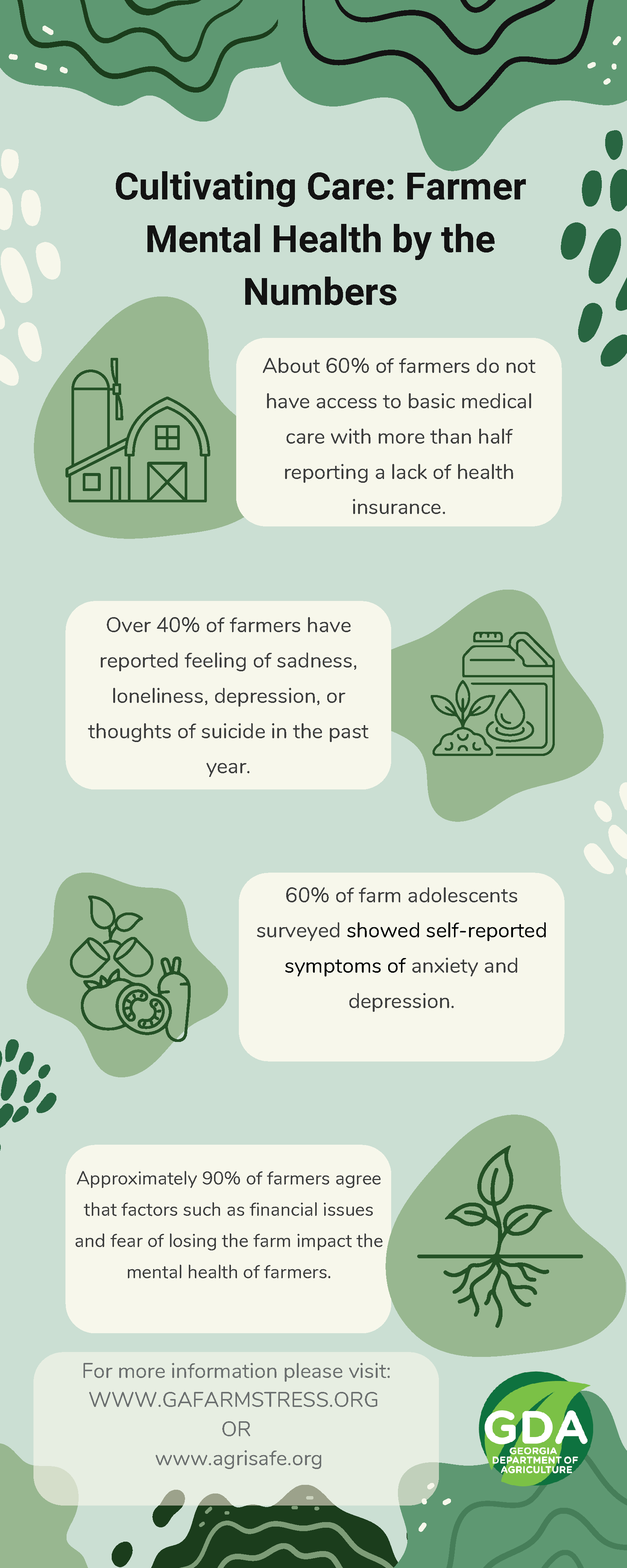Message from Commissioner Tyler Harper

As farmers, self-reliance and the do-it-yourself mentality are ingrained in our DNA, and on any given day, a Georgia farmer may face challenges on the farm that require them to act as an engineer, a veterinarian, a biologist, a soil scientist, or any number of other specialties to overcome that obstacle. That ingenuity and resourcefulness play a vital role in the success of Georgia's farm families and our state's #1 industry, but it is also vitally important to realize that we cannot fix every problem on our own - especially when it comes to mental health. With dozens of external factors that impact our industry, making a successful crop year in and year out is already challenging enough, and if you're struggling with your mental health, it becomes even more difficult to run your operation and provide for your family. Asking for help is not a sign of weakness. It's a sign of strength, and I encourage anyone who is struggling with their mental health to take advantage of the resources listed below. We are in this together, and as Commissioner, I'm committed to raising awareness of the mental health resources available to farmers and rural Georgians and working to increase access to quality mental healthcare across the state.
God Bless & Keep Plowin’,

Tyler Harper, Commissioner of Agriculture
Mental Health in Agriculture
Many farmers and producers in Georgia face untreated or overlooked mental health challenges. At GDA, we're committed to increasing awareness and providing education about available mental health resources to Georgia's agricultural community. This year, in collaboration with the University of Georgia (UGA) and the Georgia Department of Behavioral Health and Developmental Disabilities (DBHDD), we're expanding our efforts to offer crucial mental health support to farmers and rural communities across the state. We're working to develop and implement tailored mental health resources for farmers and producers with partner agencies like DPH, Georgia Agricultural Wellness Alliance, Georgia Foundation for Agriculture, and Georgia Farm Bureau.
Mental Health Statistics
According to the Georgia Foundation for Agriculture Survey by Mercer University, 40% of farmers have considered suicide within the past 12 months, with 29% having such thoughts in the past 30 days. Additionally, 60% of farmers lack access to basic medical care, and more than half are without insurance. These concerning statistics underscore the urgent need for targeted mental health support and resources in Georgia's farming communities.
In collaboration with UGA and DBHDD, we have invested nearly $5.3 million in mental health programming and resources for farmers and rural Georgians since 2021. Since 2018, the GDA has allocated approximately $500,000 through the USDA-NIFA Georgia Healthy Farmer Mindset Grant, supporting training, outreach, education, and coordination with partner agencies.
UGA Extension – resources geared towards rural communities focusing on stress and mental health, nutrition and physical healthy, financial management, and youth development.

Department of Behavioral Health and Developmental Disabilities - home of the Georgia Crisis & Access Line (GCAL): 1-800-715-4225. This phone number provides immediate access to help and is available 24/7.
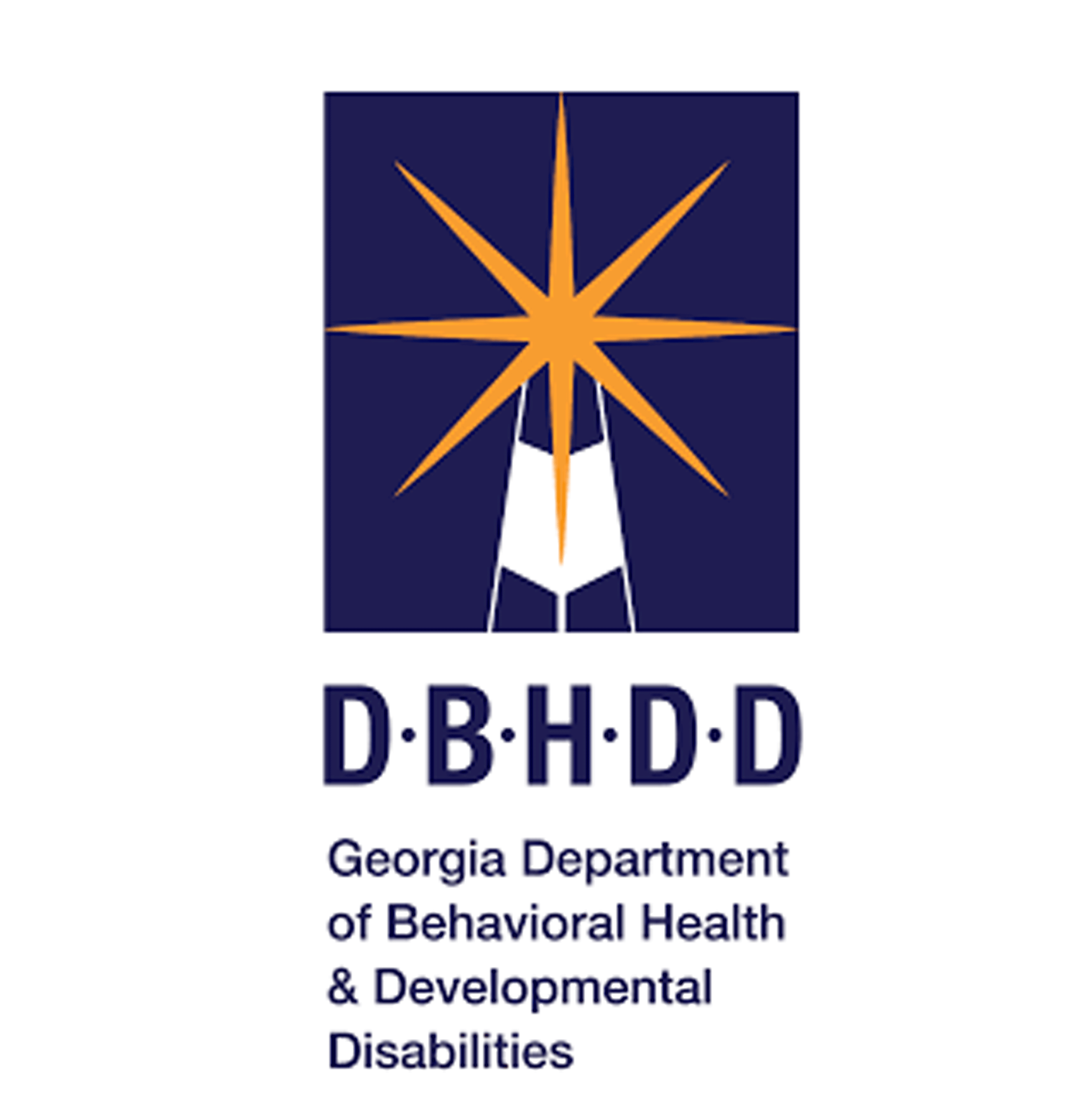
Agrisafe Network – resources in English and Spanish focusing on mental health geared towards farmers and minorities in the agriculture community.

Georgia Suicide and Crisis Lifeline – an emergency phone line 9-8-8, for people seeking help with suicidal thoughts.

GDA Disaster Resources and Recovery – mental health resources focusing on disaster recovery and animal disease outbreaks.

Georgia Agricultural Wellness Alliance (GAWA) – ajoin a coalition of farmers, nonprofits, universities, health organizations, and more with the common goal of improving the well-being of farmers and farming communities in Georgia.
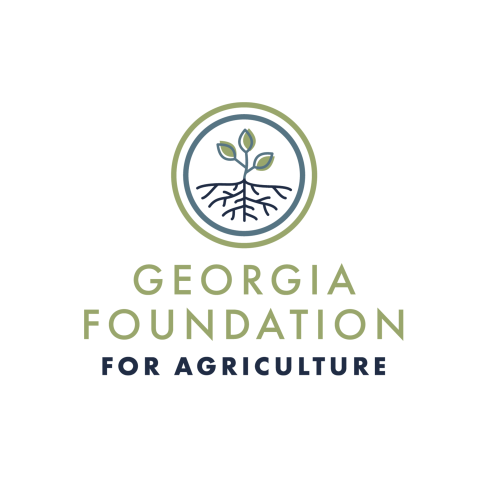
Let’s Check In – Signs of Stress
You may think that the signs and symptoms of stress are obvious, but there are some symptoms you may experience without realizing. Take a few moments to check in with your behavior, body, emotions, and thinking with the signs below.
- Digestive issues
- Headaches and pains
- Losing your appetite/eating too much
- Sweating and/or chills
- Tremors or muscle twitches
- Easily startled
- Decrease or increase in energy level
- Irritability
- Trouble relaxing or sleeping
- Crying frequently
- Worrying excessively
- Blaming other people for everything
- Difficulty communicating/listening
- Having difficulty giving or accepting help
- Anxious or fearful
- Depression, guilt, or anger
- Feeling heroic, euphoric, or invulnerable
- Not caring about anything
- Feeling overwhelmed
- Trouble remembering or making decisions
- Feeling confused
- Trouble thinking clearly and concentrating
If you find yourself experiencing some of these signs or symptoms of stress, try checking out some of the resources at the top of this page.
